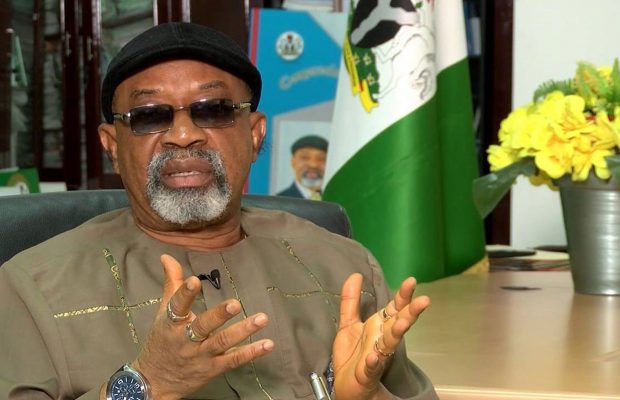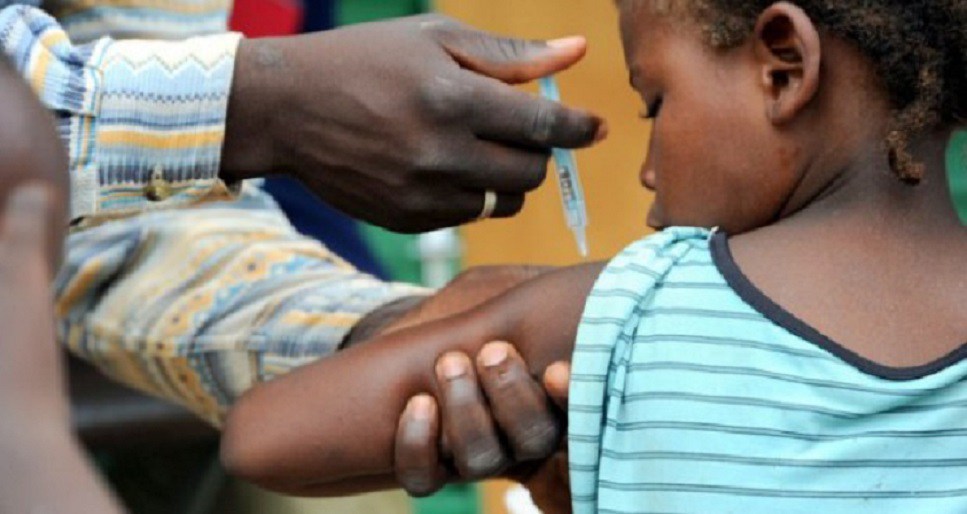NARD May Suspend Strike Soon- Ngige
There are indications that the National Association of Resident Doctors (NARD) may suspend its 21-day old strike soon as President Muhammadu Buhari has ordered the dismantling of all ‘technicalities’ to resolve the crises.
The Minister of Labour and Employment, Dr. Chris Ngige, who disclosed this Friday at an expanded meeting that included the President of Nigeria Medical Association (NMA), Prof. Innocent Ujah and the leadership of all medical professions under the aegis of the NMA, said the President has mandated him to resolve all the contentious issues immediately.
His words: “The President instructed me to get everybody involved in this ongoing strike to come together to discuss the issues without involving any technicality. By that, he means that all issues must be resolved even though we have, as a ministry, used the instrumentality of Section 17 of the Trade Dispute Act to refer the Resident doctors and their employers, who are the Ministry of Health in this case, to the National Industrial Court of Nigeria (NICN) to look at the merits of the case.”
This comes as fresh facts emerged that the case instituted in the NICN by the Ministry of Labour and Employment was never meant to be pursued at any level. The Guardian learnt that the ministry was not only absent at the hearing, but also there was no legal representation.
Indeed, in adjourning the case to September 15, 2021, the court admonished the contending parties to seek an alternative dispute resolution mechanism, which was confirmed by Ngige yesterday.
Ngige said: “The National Industrial Court, in its ruling, agreed that NARD should get back on the negotiation table with their employers. Therefore, the onus falls on us to mediate in the dispute through an alternative dispute resolution mechanism. In doing that, we have invited the Nigerian Medical Association (NMA) because all medical doctors in Nigeria are members of the NMA irrespective of the field of practice.”
On his part, the Minister of State for Health, Dr. Olorunnimbe Mamora, said the oath medical doctors take is a solemn covenant between God and humanity and should not be seen to jeopardise the wellbeing of their patients.
“It cannot be and should not be otherwise irrespective of whatever happens. The cries of the National Association of Resident Doctors (NARD) have reached the highest authority of the land, which is the President. It will be out of place to take this ongoing strike further than today. Anything done otherwise may not show respect to the highest office in the land. We are not saying that the issues that NARD is contending with are not genuine, but I am saying that everything is being done in the best manner possible to get the issues resolved.
“My plea remains what it has always been; that while efforts are being made by all the necessary quarters, I appeal that the strike is suspended that patients out there that are bearing the brunt of this situation will have a smile on their faces when the strike is suspended.”
Mamora described the presence of the Director, Budget Office, as important and central to the resolution of the crises.
The President of NMA, Prof. Innocent Ujah, who bemoaned the non-invitation of the NMA to the initial engagements, said NMA ought to have been invited to any meeting where the interests of doctors would be discussed.
“The President of the NMA was not carried along in all the engagements. The strike is 20 days old today and the President of NMA has not made a statement because we did not have information on the issues. We feel for our patients. Doctors are trained to prevent diseases, cure illnesses and promote health. Therefore, no doctor is trained to go on strike. The strike was avoidable if things were done right. This strike paints doctors in a bad light,” he stated.
Ujah also lamented the exodus of medical doctors from the country in search of better working conditions abroad.
He added: “Doctors are leaving this country in large numbers and they will continue leaving. Fortunately, we are in a democracy where mobility of labour and movement of people is guaranteed. Doctors’ exodus happened in 1978 and it happened in 1991 and it is happening again. In 1991, it was the consultants that moved to Saudi Arabia. In 1978, it was because of a certain policy. Now, both the young and the old are leaving. They are leaving to where they will practice medicine unhindered. They won’t be labourers in any part of the world. We train our doctors very well; they are properly trained. When you go out to any part of the world, who do you see? Nigerian doctors! We are not asking for too much. We could well be asking that we should be paid in dollars. We are not saying that. We are asking for minimum equipment and atmosphere to treat our patients.
“There are staff shortages everywhere. Few doctors are attending to many patients. But that is not even the complaint here. There are many people in the service that are posing as obstacles.”




